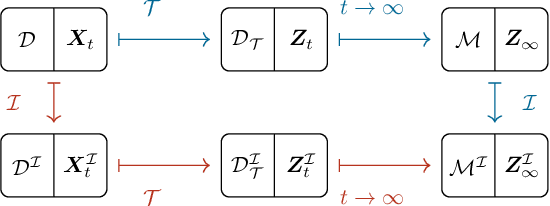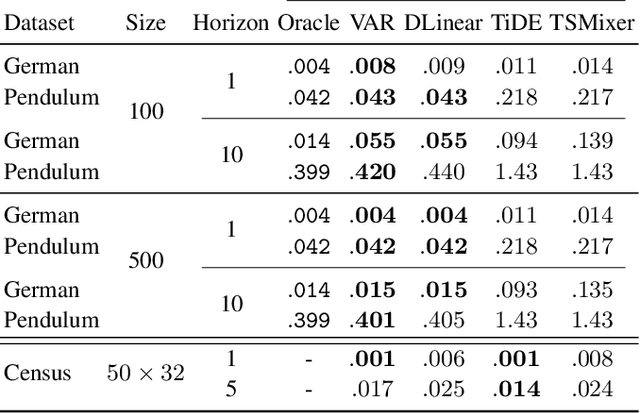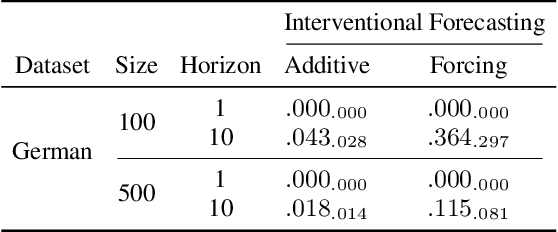Isacco Beretta
A Practical Approach to Causal Inference over Time
Oct 14, 2024



Abstract:In this paper, we focus on estimating the causal effect of an intervention over time on a dynamical system. To that end, we formally define causal interventions and their effects over time on discrete-time stochastic processes (DSPs). Then, we show under which conditions the equilibrium states of a DSP, both before and after a causal intervention, can be captured by a structural causal model (SCM). With such an equivalence at hand, we provide an explicit mapping from vector autoregressive models (VARs), broadly applied in econometrics, to linear, but potentially cyclic and/or affected by unmeasured confounders, SCMs. The resulting causal VAR framework allows us to perform causal inference over time from observational time series data. Our experiments on synthetic and real-world datasets show that the proposed framework achieves strong performance in terms of observational forecasting while enabling accurate estimation of the causal effect of interventions on dynamical systems. We demonstrate, through a case study, the potential practical questions that can be addressed using the proposed causal VAR framework.
The Importance of Time in Causal Algorithmic Recourse
Jun 08, 2023Abstract:The application of Algorithmic Recourse in decision-making is a promising field that offers practical solutions to reverse unfavorable decisions. However, the inability of these methods to consider potential dependencies among variables poses a significant challenge due to the assumption of feature independence. Recent advancements have incorporated knowledge of causal dependencies, thereby enhancing the quality of the recommended recourse actions. Despite these improvements, the inability to incorporate the temporal dimension remains a significant limitation of these approaches. This is particularly problematic as identifying and addressing the root causes of undesired outcomes requires understanding time-dependent relationships between variables. In this work, we motivate the need to integrate the temporal dimension into causal algorithmic recourse methods to enhance recommendations' plausibility and reliability. The experimental evaluation highlights the significance of the role of time in this field.
 Add to Chrome
Add to Chrome Add to Firefox
Add to Firefox Add to Edge
Add to Edge